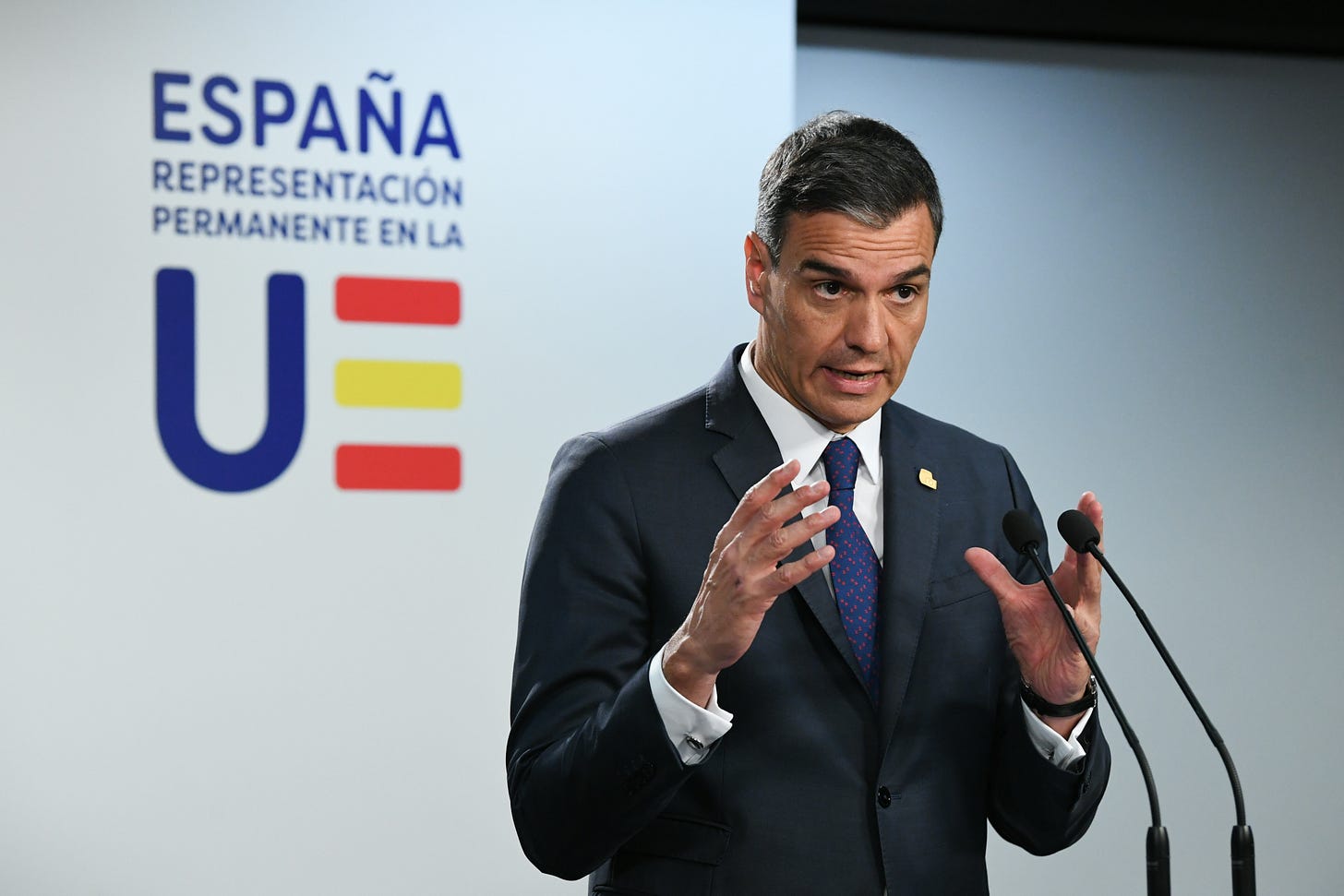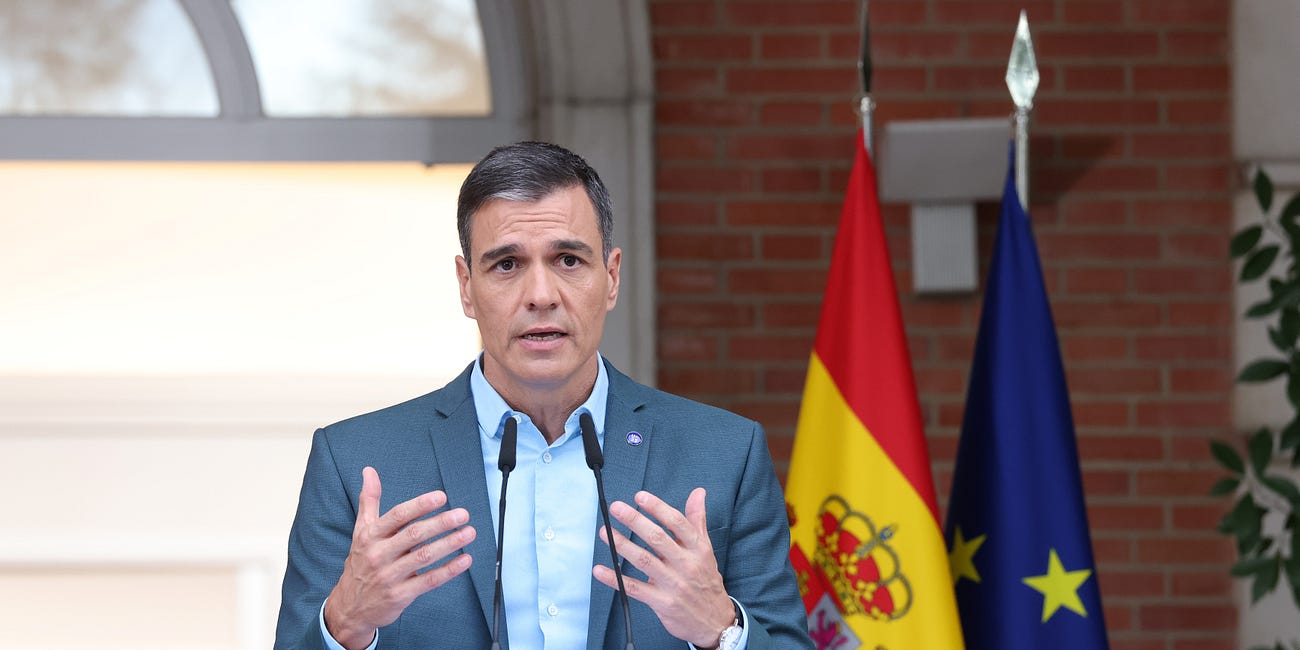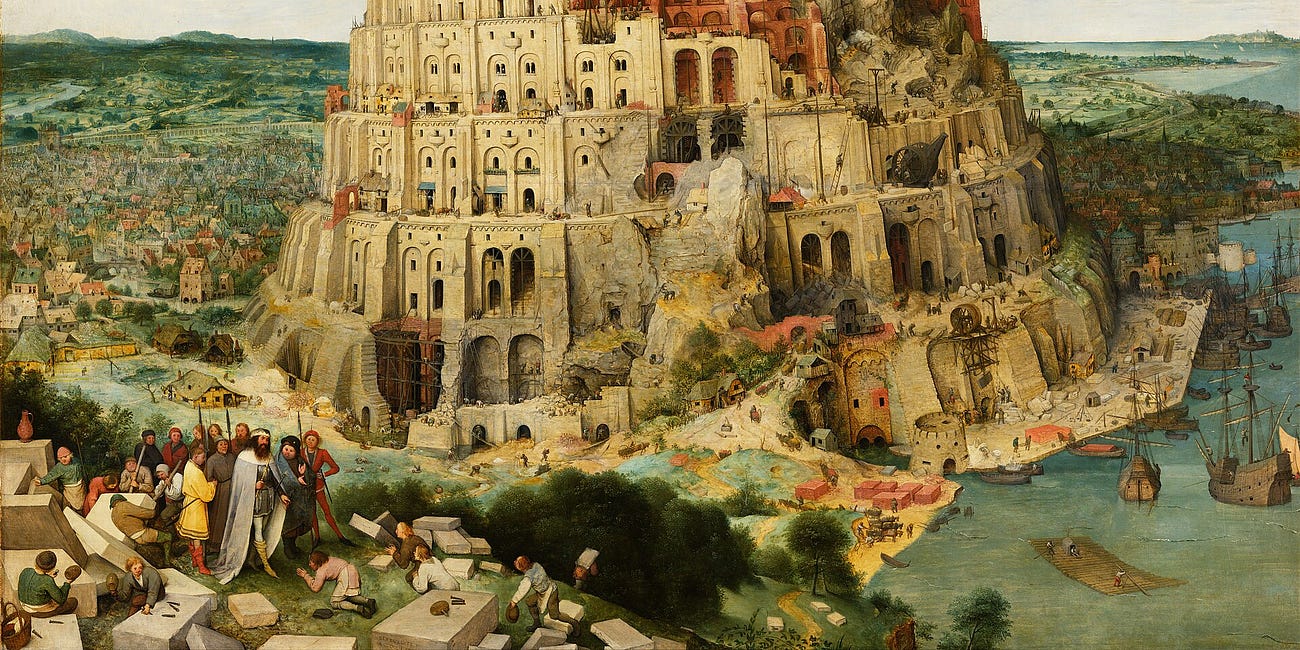Sanchez shot down on request to make Catalan an official EU language
Other EU governments are concerned that opening EU official status to regional languages and dialects will open the flood gates and cost taxpayers millions in translation costs. And they're right.
Spanish Prime Minister Pedro Sanchez wanted to show he is deadly serious about his request to make Catalan, Basque and Galician official EU languages this week, reportedly even threatening Eastern EU countries that Spain will not support them militarily if they don’t support his quest. The Spanish government is denying that they made any such threats, but the FT reports that multiple embassies say they were on the receiving end of this intimidation, with one diplomat calling it “bullying” and “outrageous at a time like this.”
Sanchez promised Catalan separatist parties that he would make the request after the summer 2023 election, because he needed their support in order to form a government. At the time, I wrote that Sanchez surely knew this is something he could not actually deliver. The Council legal services has concluded that adding these languages would probably require treaty change, because the current treaties only anticipate languages that are official at national level becoming EU languages. Even if these legal obstacles could be overcome, it is hard to imagine countries with significant minority languages or dialects like Italy, France, Germany, Bulgaria, Sweden or Latvia would allow it to happen - and it needs the assent of all EU countries. But according to Spanish media, in recent weeks the Catalans have tried to call his bluff and put pressure on him to make progress on his promise. It is likely that Sanchez wanted the reports about his threats to other EU countries to get out into the media, to show the Catalans he is fighting hard for them. He is known for such theatrics.
But though this morning there were rumours that Sanchez might get the unanimous assent he desired in a Council vote today, as it turned out a large number of countries instead demanded the vote be taken off the agenda because they need more time to look at the legal, financial, administrative and technical aspects. In other words, they kicked it into the long grass. I’m told that seven countries strongly opposed Sanchez’s proposal during today’s General Affairs Council of national representatives. In the end, it may not matter to Sanchez as long as he is seen domestically as fighting hard for the change.
Will Sanchez stay in power by promising Catalans things he can’t deliver?
I’m in Barcelona this summer, spending all of August here working on a project, and it’s an interesting time to be in Catalonia. Following last month’s inconclusive Spanish election, negotiations are ongoing to form a government and the Catalan separatists have emerged as the kingmakers.
Though there are 27 countries, there are just 24 official EU languages - because the national languages of Austria, Belgium and Luxembourg are already registered by other countries. Until 2021, there were three EU countries which have an official national language that is not official at EU level: Luxembourgish in Luxembourg (because it’s a dialect of German), Turkish in Cyprus (because for obvious reasons Cyprus has never asked for it to be made official at EU level) and Irish in Ireland. The reason for the latter was that there is no unilingual speaker of Irish, every Irish speaker also speaks English which is an official EU language. But in 2007 Ireland requested that Irish be registered as its official EU language - which had to be changed to both Irish and English after 2020 because of Brexit (in order to keep English as an EU official language). Irish fully became an official EU language in 2021.
The EU treaties stipulate that a country can request to have its national language become official at EU level, but they don’t say anything about regional languages. Every country except the three mentioned above has requested this when they joined. Croatia controversially labelled its language as “Croatian” when it joined the EU in 2013 (it is in fact the Serbo-Croatian language, which is the national language of four Balkan countries), setting up an inevitable conflict when its neighbours join the EU. Does the EU change the name of the language, or will we all have to pay millions of euros to have the same language translated four times to satisfy Balkan nationalism?
Language is one of the most sensitive issues in the European Union. I can tell you that every time I write or tweet about anything to do with language some of the responses seem truly unhinged to me. But this is clearly a topic that enflames emotions. And so it can be easy to have a knee-jerk reaction to just make everybody happy - to say yes of course, the more the merrier. But translating and interpreting is expensive. A full calculation hasn’t yet been done, but it would run to millions of euros. Sanchez says that Spain would pay for it, but there are doubts about whether this is a real long-term commitment (and fears that though that might be the expectation at the outset, the courts will eventually say the EU needs to pay for it).
Would Catalan open the floodgates to an EU cacophony?
As expected, EU countries yesterday rejected Spanish Prime Minister Pedro Sanchez’s request to quickly establish Catalan, Basque and Galician as official EU languages - saying the issue needs more study of its costs and ramifications. The three would become the first regional languages to become official at EU level, making translation and interpretation necessary for each. The current 24 official languages are only the ones official at national level.
Imagine the situation if every regional language in the EU was made an official language. Let’s just take those that are recognised as languages rather than dialects: Catalan, Basque, Breton, Sardinian, Occitan, Frisian, Sorbian, Sami, Turkish and Russian. That would take the total number of EU languages to 34. That would mean increasing the number of translators and interpreters by a third. It would mean having to enlarge European Parliament committee rooms to accommodate all of those interpretation booths. And it would mean a gargantuan translation budget which would mean every country has to pay significantly more money to Brussels.
And that’s just for the languages. The problem is that Galician is widely recognised by linguists to be a dialect of Portuguese, an existing EU language. So if the precedent is set that dialects can also become official EU languages, get ready for Bavarian, Sicilian, Venetian, Cretan, etc. Before you know it we could have 100 official EU languages.
Catalans say this Pandora’s box argument is absurd because there are four million native Catalan speakers, more than the number of speakers for five official EU languages - Lithuanian, Latvian, Estonian, Slovenian and Irish. (There are an additional five million people who speak Catalan as a second language, by the way, but it doesn’t seem to make sense to count that for this purpose). But if this is based on numbers, then why wouldn’t Bavarian warrant it with 14 million speakers? Or Sicilian with 4.7 million speakers? You will find plenty of people in those regions who say theirs is a language not a dialect. And as Max Weinreich famously pointed out, there can be a thin line between defining which is which.
And what about the languages in Europe not tied to a specific geography? Five million people living in the European Union speak Arabic as a native language. Six million speak Turkish. Nine million speak Russian. Do the Catalans think those three should be made official EU languages because they have so many speakers? Or would they say those don’t count because they’re not “geographically native” to the EU? Well, go back just a few centuries and they were native to Spain, Bulgaria and Greece. And if the argument is just for languages currently tied to an EU region, then you open the door to all the languages mentioned in the previous paragraph. Where do you draw the line?
I know it’s not a politically popular thing to say that these regional languages shouldn’t be EU official languages. But the Pandora’s Box argument is a legitimate one. Catalans have all my sympathy for the way they were forcibly made to be Spanish with the Nueva Planta decrees in 1707. Spain is a made-up country created just a few centuries ago, just like all the countries of Europe. But these are the countries we’ve ended up with, and the nation-state model has served as the basis under which the EU functions.
Yes, it would be absurd if the EU ends up translating the same Serbo-Croatian language four times under different names while an actual language spoken natively by four million EU citizens isn’t translated. A language being defined as official at national level doesn’t actually tell you much about that language’s utility or legitimacy. Perhaps we need to reevaluate the nation-state model of the EU. I’m all for changing that, for creating a ‘Europe of the regions” that undoes the damage that the creation of nation-states has done to this continent over the past 300 years. I’m happy to have that broader discussion. But the fact is that the way the EU is set up now, where the nation-state is sacrosanct, doesn’t leave room for starting to add regional languages to the list of languages we have to translate and interpret. It’s not a perfect system, as evidenced by what may happen in the future with Serbo-Croatian. But the line has to be drawn somewhere.
At the end of the day, this isn’t just a nice symbolic gesture that helps out Spain by alleviating their domestic tensions. This is a real decision that has real logistical and financial implications not just for Brussels institutions, but for all EU citizens. To pretend otherwise is ignoring reality.
Musings on Corsica, Sardinia, and accidents of history
I’m on a train travelling through the mountains of Corsica, from the French-vibed capital of Ajaccio to what I hear is the more Italian-vibed second city of Bastia. I’m coming toward the end of a two-week trip by plane, train, automobile and boat across this island, part of France, and the Southern island of Sardinia, part of Italy. It’s not been easy. …






"(it is in fact the Serbo-Croatian language, which is the national language of Baltic countries)"
Ummm, As a subscriber who follows this for takes on the EU, the above sentence REALLY makes me wonder about having subscribed, I figure there are some people in Estonia, Latvia and Lithuania who actually know Serbi-Croat, the actual name of the language, but I have yet time to meet any,